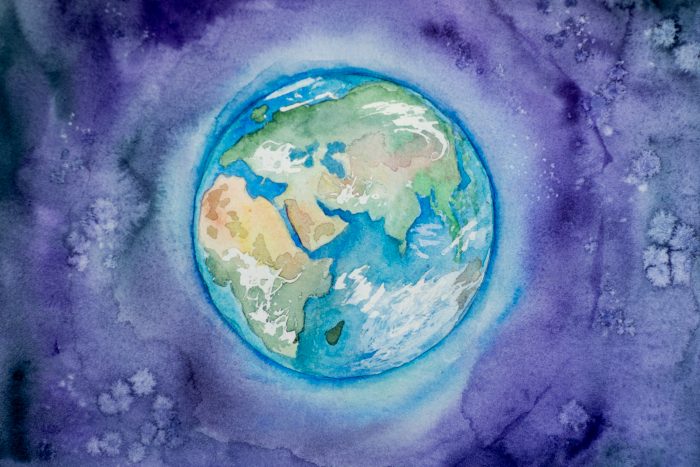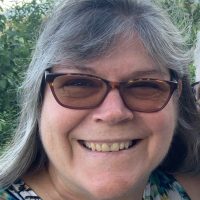“Oh no! We’re losing her!”
Those were the last words I heard before leaving my body.
It was August 9, 1978, and a record-breaking heat wave was killing people all over the nation. I was 23 years old—a union carpenter apprentice working on a job whose foreman did not think women belonged and who was, therefore, determined to help me change my mind about my privilege to be there.
It was 106 degrees outside.
I was working on an asphalt roof three stories up.
The only water on the job was down a series of ladders and across a parking lot. I was dehydrated and exhausted as our workday ended. I got to the water hole and splashed water on my face after drinking all I could. My friend, Phyllis, the only other woman on the job, wanted to go to the local bar to cool down.
I should have gone with her.
I arrived at my car, covered in fine dust from the dirt road. I pulled open the car door to a blast of heat—I always kept the windows rolled up to prevent all the dust from covering the inside. The dust swirled into my face and cascaded down the car window like a Tetris landscape, accumulating in a pile. I climbed in, turned the AC on, and waited a few minutes. I just wanted to get home, put my feet up, cool down, and recover from the unbearable heat. I didn’t make it.
The last thing I remember was seeing the hood of my car and another car coming at me.
I passed out from heat exhaustion.
Next thing I knew, I was on the ground, with a state trooper kneeling over me, asking if I had been drinking. “No, I just got off work.” There was confusion all around as I faded in and out. I looked down to see my leg ballooned up and straining my jeans. They cut off my boot.
I thought, “Don’t cut off my boots! They’re brand new!”
They cut my pant leg before strapping me into a device and applying traction to my leg. The pain was unreal. I left consciousness. I was too tall with the traction to fit into the Flight for Life helicopter. They had to remove that traction and put on a different one. The pain.
That’s when things got interesting. My next perspective was being on the roof of the helicopter, looking down on myself!
The two flight staff were working frantically on me, balancing as we angled in the air. That’s when I heard the nurse say those words.
“Oh no! We’re losing her!”
The next thing I remember, I was in the most beautiful bright white light. Words are difficult to find to describe where I was. I saw nothing except the light. The feeling though…that I can describe: expansive, all-encompassing, pain-free, true unconditional love. It was wonderful there, wherever “there” was.
I had always longed for that feeling. I wanted to live there, surrounded by this energy field of love.
That’s when I heard a kind, gentle voice say, “Do you want to stay or go back?” It was a surprise when I responded without thought or using my voice. “I don’t know what I was here for. I need to go back.”
That’s when I first thought about my purpose.
The next months were hellish.
I had fractured my left femur in two places, my right forearm, and my entire pelvis was “like an urban map with fine lines leading in every direction,” one of the doctors relayed, shaking his head in awe. “It’s a miracle you made it.”
I was in a body cast for six months, from my foot all the way up under my breasts. A shorter cast for another three months. It made for difficult care. I needed help with just about everything.
I learned to walk again and do all the normal tasks. It wasn’t until perhaps a year later I was jolted when I came across a view of the Earth from space.
I knew I had been there!
I remembered the feeling of being infinitely small, just a speck in the universe, and how I was a part of that whole. I remembered the white light and the conversation. I had a purpose. I wasn’t sure exactly what that was, but I knew I had to find it.
It wasn’t until I finished college at Eastern Washington University as a social worker and was looking for work that I stumbled into that purpose. I applied to many positions, but the local area was inundated with new social work graduates.
My schoolmate Nancy had left the day of graduation to return to Ashland, Oregon, her preferred stomping grounds. She frequently sent me job notices, so I started applying there for any job I was remotely qualified for, including drug treatment programs, hospitals, and clinics. Then, out of the blue, Providence Hospice called me. I had not applied there.
“That’s interesting.” I thought.
I interviewed and was told they would be in touch.
I didn’t hear back for weeks. In the meantime, I accepted a position at a local drug rehab program. I got my feet wet. The call finally came and I was accepted to work with Providence Hospice.
In the years to come, I got closer to my purpose when working with the folks who were facing their death. When I was asked, “Where do you think we go when we leave here?” I shared my story about my experience. How, when I was in the in-between I knew I was a part of this grand community and that I needed to connect with the others. It changed my perspective; they’re just like me. They have hopes and dreams and their own purpose. While I only shared with people who seemed open to it, a few people really opened up after hearing my story, which led to deep and enlivening conversations about many things: coping, family, responsibilities, regrets, and purpose. One woman expressed, “I feel like it’s not so scary anymore. I can go now. I’m sure this is not the end.”
Over 15 years, I have encountered many different kinds of people. I have traveled to their homes in the community and seen so many different lives. Connecting with purpose, seeing regrets as learning opportunities, and being at ease in the process became our common goals.
Eventually, I retired from working. My goal continues to be connection and acceptance.
At present, my dear friend has just been entered into hospice. She has esophageal cancer. She is in good spirits, accepting, and doesn’t complain about her pain. She has faced death, looking it right in the face. She used to go to a support group meeting she called the “Death Cafe” at our local library. She no longer has the energy to engage for more than 15 minutes, so she no longer attends.
I take a deep breath knowing I will miss her profoundly. I regret the missed opportunities, wishing for more precious time with her. I am reminded to balance and prioritize to avoid regrets. I am sure I will continue to learn from Renee even after her death.
When I need a reminder of that pure, unconditional love, I meditate on the white light. I’ve come to believe that our purpose —all of our purpose—is to share that love with others, to open our hearts, and to help others do the same.












Read 2 comments and reply